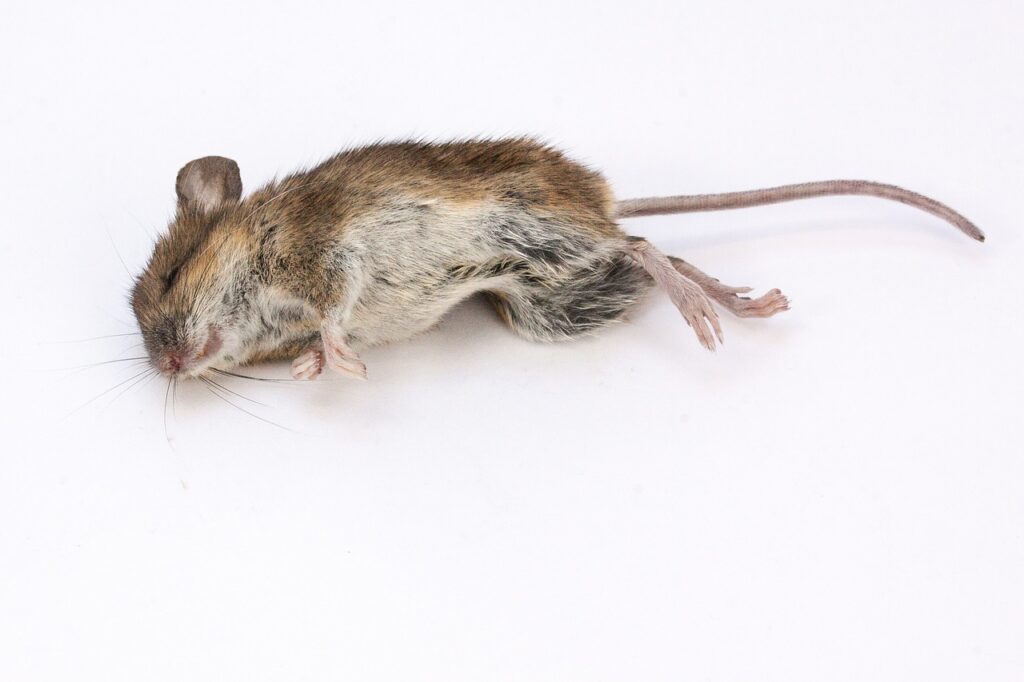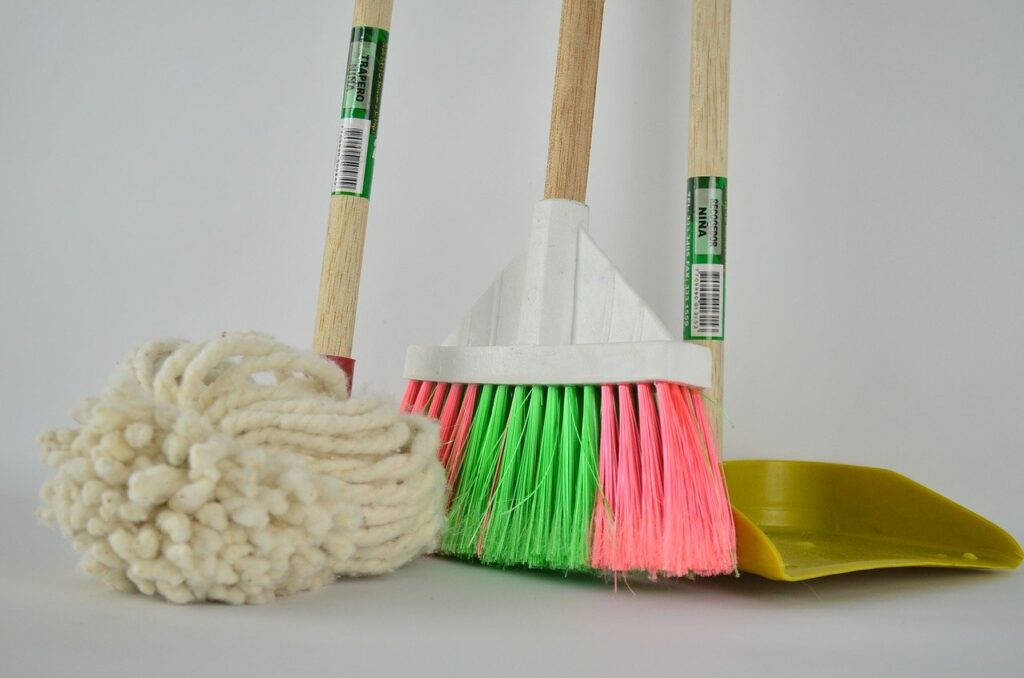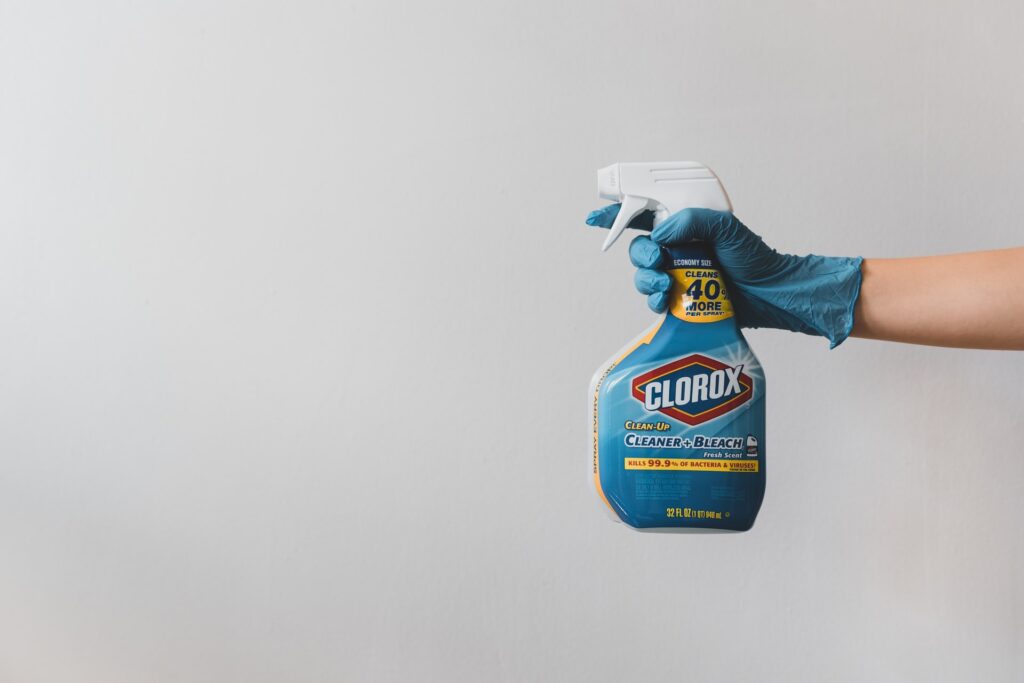Table of Contents
A mouse infestation is filthy and smelly. If you don’t clean up after the treatment, your home will smell like a hot, rotten mess. Aside from the awful scent, the excrement of mice may bring diseases to your family. You must clean up, dispose of, and disinfectant the affected areas properly. In this post, I will help you with how to clean up after mice in kitchen and other parts of your house safely.
Cleaning urine and droppings
The first thing you have to do is to remove the solid matter that the mice left behind. Here are the steps you can take to get rid of the gross droppings:
Step 1. Wear protective gear
Before you go to ‘war’, make sure that you wear the necessary protective wear like rubber gloves, mask, and rubber boots. You should never have any contact with any dead mice or their excrements. Remember that this matter is reeking of germs.
Step 2. Soak it with bleach
Before you start picking up anything, I recommend spraying all the droppings and carcasses with diluted bleach. This will neutralize any bacteria or virus that lives on the surface. A solution of 1 part bleach and 9 parts water is ideal.
Step 3. Pick up the droppings
Get some paper towels to pick up any solid matter that the mice have left. In the case of carcasses, make sure that you have trash bags ready.
Step 4. Seal it on a bag
Once you’re done picking up the droppings and dead mice, make sure that you seal it inside double or triple layers of trash bags. Never puff the extra air from the bag as it will make the bacteria and viruses go airborne.
After sealing the first bag, place it into another bag, and seal it tightly.
Disposing of mice excrements
Remember that some cities in the U.S. have strict rules when it comes to disposing of animal carcass. You may not be able to put the dead mice directly to the trash. If you’re dealing with several dead mice, you can probably get away when disposing of it on the garbage bin. Just make sure that the bag won’t open when garbage collection dumps it into the truck.
You also have the option to bury several mice bodies in your yard. However, make sure that you dig deep enough so scavenging animals won’t unearth a horrific scene in your garden.
However, if we’re talking about dozens or hundreds of mice, you must call a local extermination company. They can help dispose of the dead mice for a fee. However, if you paid for extermination, the contractor should also offer a disposal service so you’d only have to deal with cleaning and disinfection.
Also, you must throw away the rubber gloves you used. Dump it inside the second bag instead of placing it inside an open trash bin.
Disinfecting the affected area
After you got rid of any droppings or mice bodies, it’s time to disinfect. Take note that disinfection is an important process you simply can’t skip. Also, it’s not just a matter of masking the scent. You need to eliminate any remaining traces of the pest so it will not bring health problems to your family.
You must do the following steps for proper cleaning and disinfection:
Step 1. Mop the floor
The first thing you should do is mop the floor. Use detergent and bleach if the damage isn’t an issue. Most outdoor floors can make use of diluted bleach (the same proportion as stated above) to kill any lingering bacteria from the pest. I recommend using a mop with a removable head so you can dispose of it as well.
Mop the area and rinse multiple times. However, make sure that no pets and children are around, especially if you’re using bleach. You must wear gloves, and eye protection as bleach can have a stinging effect.
For your kitchen, you must wipe all surfaces, including countertops, cabinets, and other spots affected by mice. You should also use diluted bleach.
Step 2. Wash everything that got in contact with the mice
You should wash all bedding, clothing, drapes, and rugs affected by mice droppings or carcasses. Use hot water and detergent to clean any bacteria.
Also, you must wash any porous object that has been exposed to the infestation. You can use an all-around cleaner diluted in water.
For kitchen items, I recommend running everything into the dishwasher. Be meticulous in cleaning utensils and items you use for eating.
Step 3. Spray a disinfectant
After cleaning and rinsing everything, you can use a disinfectant spray as a finishing touch to all the affected areas. It also will help neutralize the bad odor. Remember, you need to eliminate the odor and not mask it. The logic is that if there’s a bad odor, there are still remaining droppings and bacteria around.
When to call a professional
If the rodents had access to your air ducts, you must call a cleaning expert right away. This is even more important if a mouse died on your air ducts. Never turn the system on as it will cause the smell and pathogens to circulate in your home. When this happens, you would have to clean a bigger area.
Also, if you don’t want to do the dirty work, it’s better that you trust the professionals. This is an ideal option for those who dealt with a massive rat infestation and has now to clean dozens of dead bodies and large amounts of droppings.
Frequently Asked Questions
Q: Can I vacuum mouse droppings?
A: You should never vacuum mouse drippings because it will only make viruses and bacteria airborne. The droppings will also smear on your vacuum, which is another task you’d have to deal with. Just pick the droppings manually while wearing rubber gloves. This will prevent the matter from spreading and getting in contact with more surfaces.
Q: Can I get sick from cleaning mouse poop?
A: If you’re not careful in cleaning mouse droppings, you may acquire diseases like the dreaded hantavirus. This is the reason why you should always wear protective gear like rubber gloves, mask, and goggles. You should also wash your hands thoroughly after cleaning the affected areas.
Q: How long does a virus live in mouse droppings?
A: Most viruses on mouse droppings will die on its own after a week when it doesn’t find a host. Exposure to sunlight and heat will kill viruses faster. Still, you should always wear protective equipment when cleaning and picking up mouse droppings. You can never take chances when it comes to infections.
Q: How will I know that all mice have gone?
A: If you no longer hear scurrying or scratching sounds on spots where you’ll usually spot the sound, it’s possible that the mice have all died. Also, the intense smell of decomposing carcass is solid evidence that the mice have died. You must clean it up immediately as the smell gets stronger each day you let it sit in your home.
Q: Will bleach keep mice away?
A: Mice find the smell of bleach repulsive. Even humans find bleach too overpowering, so it can be a good agent to prevent a re-infestation. However, regular exposure to bleach isn’t healthy for a person, so look for safer alternatives instead. There are commercially formulated mice repellents in the market that you can try.
Final words
Knowing how to clean up after mice in kitchen is a must to prevent the droppings and carcasses from posing risks on your health. Make sure that you observe safety measures to prevent contact with various bacteria and viruses present on the waste matter. If you don’t have the skill and time to deal with the post-extermination mess, you can always enlist the help of a professional cleaning service. A pest control expert can also help you out.





